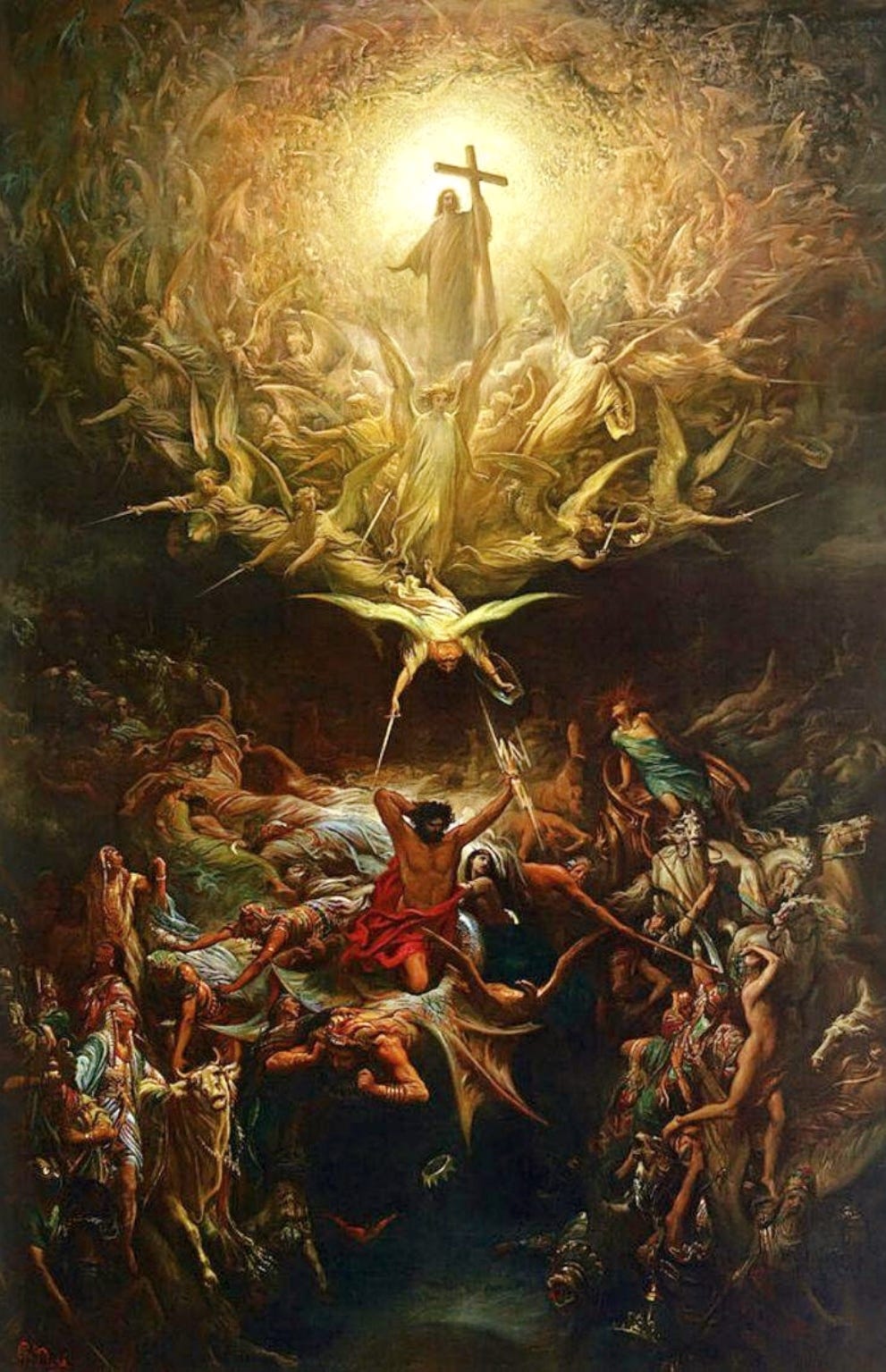The Broken Binding: Notes on Self-Help and Sacred Loss
empty cathedrals of optimization
Self-Help as Modern Religion
Religion, at its etymological root, means to "bind again" (re-ligare) or to "read again" (re-legere)—to connect oneself to something higher, to carefully reflect upon sacred knowledge. This binding shapes not just belief but being itself. What then does the modern self-help industry bind us to? Not to the divine, not to tradition, not even to genuine self-knowledge. Instead, it binds us to metrics, to optimization, to the endless pursuit of "improvement" without purpose.
The self-help industrial complex sells you optimization when what you need is genuine binding—to truth, to nature, to something beyond the shallow metrics of Liberal modernity. Instead of priests, we have "life coaches." Instead of sacred obligations, we have "morning routines." Instead of genuine reflection upon eternal truths, we have productivity apps and habit trackers. The parallel would be amusing if it weren't so spiritually desolate.
Consider figures like Bryan Johnson, pursuing immortality through metrics and measurements, or the masses consuming Ozempic in pursuit of the perfect body. This is self-help's ultimate form: the reduction of human existence to numbers on a spreadsheet, biochemical processes to be optimized, goals to be achieved. What are they bound to, except the pursuit of extension without meaning, optimization without purpose?
The self-help gurus sell you empty bromides and platitudes, packaging self-evident truths in pseudo-scientific language and charging you for the privilege. "Make your bed," they say, as if this simple act contains the secret to existence. And people pay, desperately seeking structure in a world that has abandoned true binding, true obligation, true reverence. They seek reconnection but find only algorithms.
At least the Orthodox Christian understands that while you may turn your back on Christ, Christ never turns His back on you—a true binding that persists even through failure. But what does self-help offer? Only the promise that if you follow enough rules, implement enough systems, optimize enough metrics, you'll finally be worthy. It's the perfect false religion for Liberal modernity: all form, no substance, binding us only to our own endless optimization.
This isn't to say that discipline and structure are worthless. But there's a vast difference between binding oneself to something greater—be it divine truth, natural law, or genuine self-knowledge—and binding oneself to productivity metrics and self-improvement schemes. The self-help industry has become a church where the only scripture is GDP and the only salvation is productivity.
What we need isn't more rules for life or morning routines or productivity hacks. What we need is to understand what it truly means to be—in relation to nature, in relation to truth, in relation to who we are. The hard truth isn't that you need more discipline—it's that you need to confront what you're really bound to, beyond the metrics and the optimizations and the endless self-improvement projects.
We are creatures of our time, speaking and thinking in the language of the Enlightenment, desperately trying to optimize and quantify our existence while missing its essence entirely. When a tree falls in the woods, does it make a sound whether we're there to hear it or not? The world exists independent of our perception, our metrics, our desperate attempts to control it. Our nature, like the nature of those who came before us, remains unchanged. The same darkness that possessed ancient man possesses modern man; we've just found new ways to dress it up in progress and productivity.
What we truly need is a revival of tradition, not in the shallow sense of repeating old forms, but in the deep understanding that once bound law, family, and civic life together in sacred unity. We need another renaissance—not of science and metrics, but of art and spirit. But that's a harder sell than "10 Steps to Success," isn't it?


